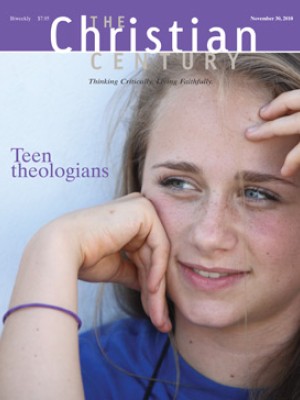Oklahoma Muslims wary after Shari‘a referendum
Born and raised in Oklahoma, Sarah Albahadily will wear her headscarf
to a Brad Paisley concert and her cowboy boots to a mosque. There are
two things she says she never misses: Friday prayers or a University of
Oklahoma football game.
But after seven in ten Oklahoma voters on
November 2 approved State Question 755, a constitutional amendment that
prohibits courts from using Islamic law known as Shari'a, Albahadily
suddenly feels a little less at home in the Sooner State.
"It's
disheartening. Even though it was expected, you still feel the blow,"
said Albahadily, 27, as she drove to the Mercy School, a K-12 Islamic
school in Oklahoma City where she teaches science.
In many ways,
State Question 755 will likely have little impact either in Oklahoma or
elsewhere. Muslims quickly point out they never lobbied for Shari'a law,
and many wouldn't support its use anyway.
What really worries
Muslims is the anti-Muslim fervor that fueled it. It's the same
sentiment behind the aborted Qur'an bonfire in Florida and the
opposition to an Islamic community center near Ground Zero. The bottom
line: Muslims increasingly feel unwelcome, unwanted and viewed by their
neighbors as un-American.
And if that sentiment can be legislated in one state, they say, it could be legislated in another.
Yet
rather that retreating from public life, Oklahoma Muslims like
Albahadily are vowing to increase their involvement in community affairs
and raise their visibility, confident that when fellow citizens get to
know them, their prejudices will dissolve.
Read our latest issue or browse back issues.
Albahadily said she
would put on a brave face for her teenage students. "If they see me
upset, they're not going to want to participate in civics or community
life. But if I can be upbeat, and say, 'OK, we're going to stand firm,'
they'll respond."
Less than 24 hours after the polls closed,
Albahadily's mother was organizing local Muslims to meet newly elected
lawmakers; local Muslim groups and the ACLU announced a bid to have the
referendum declared unconstitutional.
[The measure was challenged
as unconstitutional in court by the Oklahoma chapter of the Council on
American-Islamic Relations. Federal Judge Vicki Miles-LaGrange on
November 8 issued a temporary restraining order blocking certification
of the ballot measure. She set a November 22 hearing on whether the
restraining order should be extended until a final determination is made
in the case, according to news reports.]
There are an estimated
30,000 Muslims in Oklahoma, which has 3.7 million residents. They
describe themselves as well-educated, prosperous and attracted to
Oklahoma's friendliness, its slow pace of life and its safety.
The
referendum was primarily authored by Republican state representative
Rex Duncan and sailed through the state's legislature. In 2007, Duncan
made headlines when he refused a copy of a Qur'an given to lawmakers by
the Governor's Ethnic American Advisory Council. On November 2, he won a
bid for a county district attorney position.
Muslims say the
referendum worsened anti-Muslim prejudice that was already enflamed by
the Ground Zero controversy, the wars in Iraq and Afghanistan, and
frequent visits from Islamophobic speakers like Brigitte Gabriel, hosted
by local churches and conservative organizations. "It's really brought
the Muslim-haters out," said Allison Moore, a Muslim activist in Tulsa.
Since
the referendum was introduced in June, Moore and other Muslims said,
mosques saw an increase in hate mail and threatening phone calls.
Children walking home from a Muslim school in Tulsa were harassed by
people in passing cars. Some Muslim women left their headscarves at
home.
Muslims found a small measure of optimism from the
balloting. "At least 30 percent of Oklahomans are educated about the
issue," said Imam Imad Enchassi, president of the Islamic Society of
Greater Oklahoma City. "This is a very red state. But people are being
educated."
Muslims say they were also buoyed by support from
non-Muslims. Almost 20 organizations in Tulsa—from the Police Department
to the local Interfaith Council to the Jewish Federation of
Tulsa—formed the "Tulsa Say No to Hate Coalition," which condemned the
referendum for fanning "flames of bigotry." —RNS






